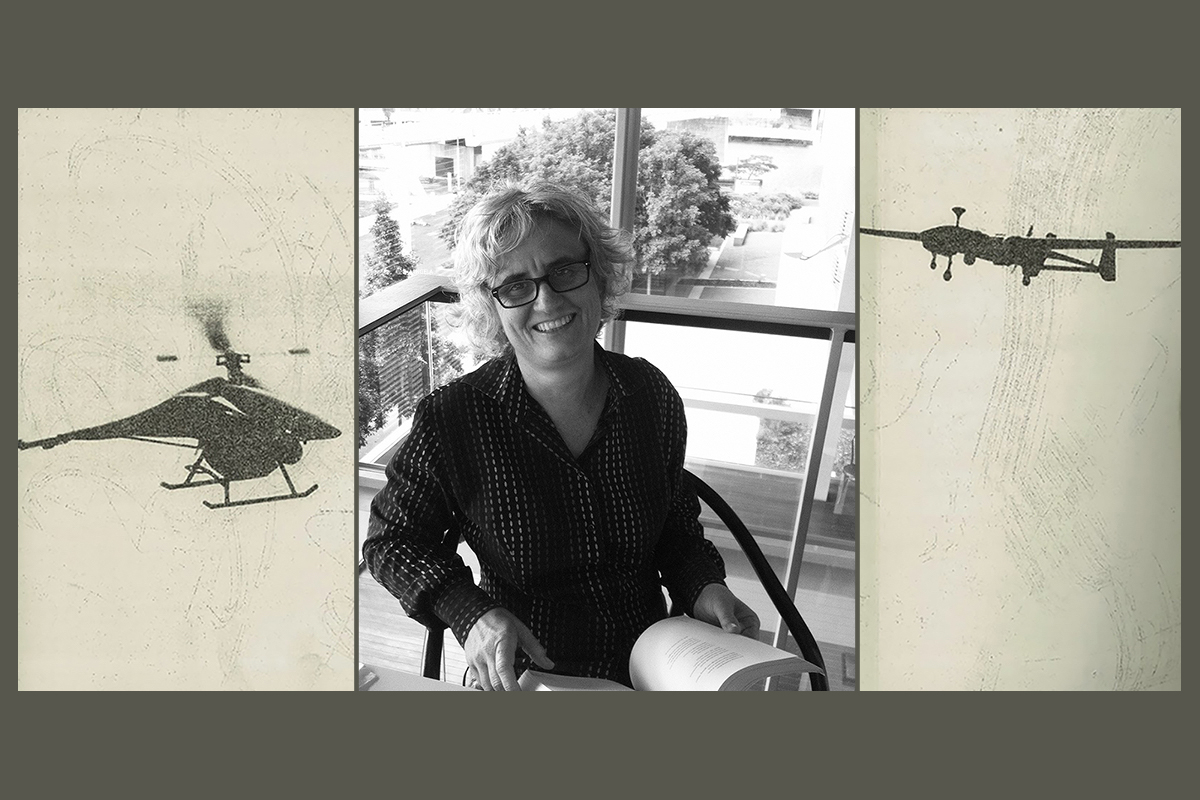Writer-in-Residence Angela Gardner explores climate change through poetry
In the three years since Angela Gardner was named one of UNSW Canberra and the ACT Writers Centre’s Writers-in-Residence, the world has seen
In the three years since Angela Gardner was named one of UNSW Canberra and the ACT Writers Centre’s Writers-in-Residence, the world has seen

In the three years since Angela Gardner was named one of UNSW Canberra and the ACT Writers Centre’s Writers-in-Residence, the world has seen several events that have been attributed to climate change.
However, it’s the invisible effects of climate change that the award-winning poet wants to highlight in her latest work.
When she applied for the residency, she pitched a collection of poems about air, but in those short few years, the air has changed.
“Three years ago, I was thinking of air in a more general way,” Ms Gardner said.
“I was certainly thinking about the fact that there's over 400 parts per million of carbon in the atmosphere and what that was going to do, but it's now 419 and it’s not going backwards,” Ms Gardner said.
“The problem for all of us is that air looks like air still, it’s invisible. Se we can easily think there’s nothing to worry about.
“The Now Solid Air looks at what we’re doing to this planet and how we can make air visible so people can see that there is something going on.”
While Ms Gardner has been in Canberra for the residency, her neighbourhood in the hinterland of the Sunshine Coast has been on fire. These bushfires, as well as the forest fires in the Amazon have inspired her latest work.
“I’ve been looking at how that carbon gets back into the atmosphere through forest fires, as well as the role of combustion.”
She said artists can contribute to the conversation on these major global issues in a unique way.
“I think it’s important for artists and poets to address these issues because politicians fail to,” Ms Gardner said.
“Poets are very attuned to language – so are politicians – but we’re trying to do different things. A politician may be very mealy mouthed or sidestep a question, whereas a poet doesn’t have the same problem with taking risks. I think there is something to be said for if you’re using a language to use it for good.”
The Now Solid Air is a world away from her most recent work, The Sorry Tale of the Mignonette.
“The Sorry Tale is about my great grandmother’s cousin Richard Parker,” Ms Gardner said.
“My great grandmother was Sarah Parker. They were both 17-years-old in a little village in Hampshire. He went to sea and was shipwrecked and murdered and eaten, which is a pretty ghastly story.”
Drawing from street ballads, sea shanties, newspaper reports and court proceedings, the verse novel explores the language of the 19th century.
Ms Gardner will discuss The Sorry Tale of the Mignonette and The Now Solid Air at a UNSW Canberra public lecture.
“I would suggest that it’s actually going to be a very interesting lecture,” Ms Gardner said.
“The subject matter of the first half of it is shipwreck, murder and cannibalism, which is pretty out there.”
The lecture will mark the end of a busy residency, which has included poetry readings at Smith’s Alternative, workshops with the ACT Writers Centre, teaching a UNSW Canberra undergraduate English class and research in the Academy Library.
“I’m really, really enjoying it,” Ms Gardner said.
“There’s been wonderful resources and a great welcome. I’m just having such a ball.”
The ACT Writer-in-Residence Public Lecture will be held in the Academy Library at UNSW Canberra on Thursday, 26 September. The event is free. Click here to register.